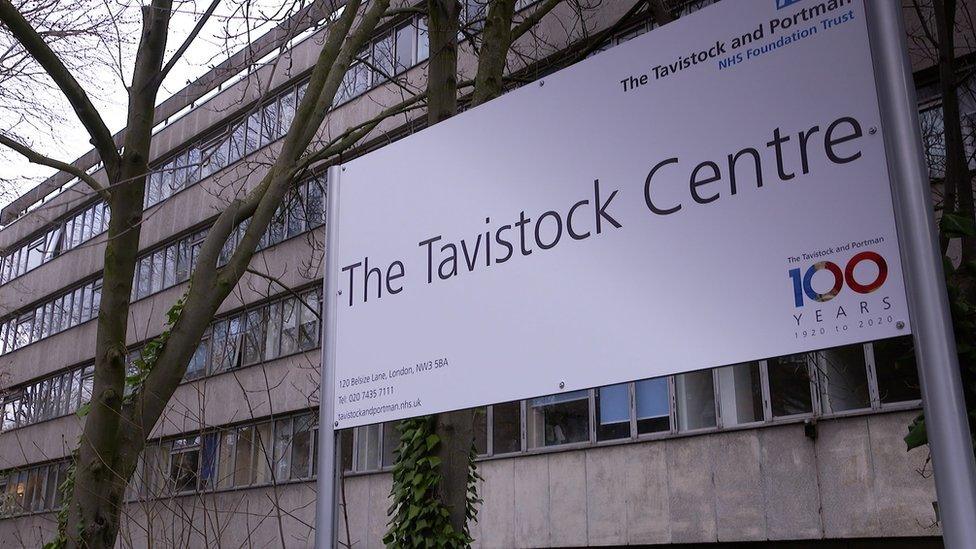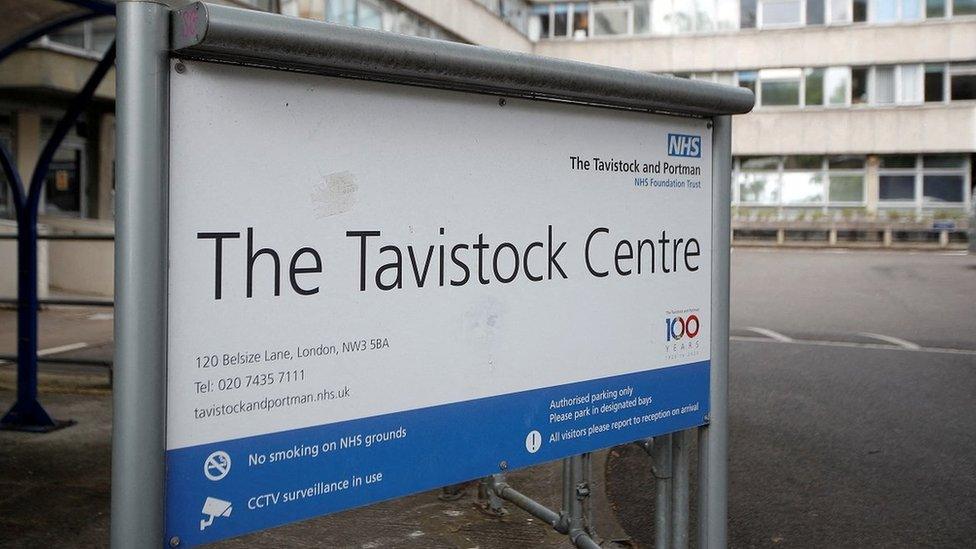Puberty blockers to be given only in clinical research
- Published

The controversial Tavistock Centre was earmarked for closure in 2022
Puberty blockers will only be prescribed to children attending gender identity services as part of clinical research, NHS England has announced.
The move comes after an interim report, external into children's gender services said there were "gaps in evidence" around the drugs.
Blockers are used to "pause puberty" and work by supressing hormone release.
Dr Hilary Cass's report called for a transformation in the model of care for children with gender-related distress.
Currently, if a child seeks medical help, the drugs are one of the options a doctor could offer to help delay the onset of physical changes that do not match a child's gender identity.
This change will come into effect when new clinics replacing the Gender Identity and Development Service (Gids) begin to open later this year. No patients being treated by the current Gids service will be affected.
Children and their families will also be "strongly discouraged" from obtaining gender-affirming drugs such as hormones, from "unregulated sources" or online providers.
A clinical study, run by the new Children and Young People's Gender Dysphoria Research and Oversight Board, will look at the impact of drugs which delay puberty.
Further details on how the study will run will be released in the coming weeks, but only those signed up to take part in the research will be prescribed puberty blockers, except in exceptional circumstances on a case-by-case basis.
It is expected that the study will mostly involve looking at patient data and records.
Recent data, external from Gids looked at a random selection of 312 patients in one year and found 47 of them accessed hormone suppressants.
An NHS spokesperson said: "The NHS is today publishing an interim specification for gender services for children and young people in line with advice and recommendations from the Independent Cass Review - this will allow the new centres to finalise their preparation for service provision later this year.
"The NHS is now engaging on the proposal that puberty blockers will not be made routinely available outside of research. We will develop a study into the impact of puberty blockers on gender dysphoria in children and young people with early-onset gender dysphoria, which aims to be up and running in 2024."
More than 5,000 people responded to a consultation on the new service specification, external last year, and the new model will be implemented when the first of the new clinics opens in the south of England this autumn in partnerships with children's hospitals.
The current service, run by the Tavistock and Portman Trust, is to close in March 2024 following an independent review, external carried out by Dr Cass - the paediatrician found the service is "unsustainable" and said a new model of care is needed.
Dr Cass said many children referred to Gids have complex needs that can be sometimes overlooked and around a third have autism or other types of neurodiversity.
The NHS says a "significant proportion" of young people with concerns related to their gender can also experience other complexities related to mental health, neuro-development and family or social matters.
The new service will take a new "holistic" approach, focusing on the needs of each child individually with "careful therapeutic exploration".
It will be updated further after the final report by Dr Cass is published.
In order to be prescribed puberty blockers on the NHS, a patient would currently need to first be assessed by Gids and referred to an endocrinologist.
More than 7,000 young people under the age of 18 are awaiting their first appointment, with the waiting list thought to be more than three and a half years long.
- Published11 May 2023

- Published24 May 2023
